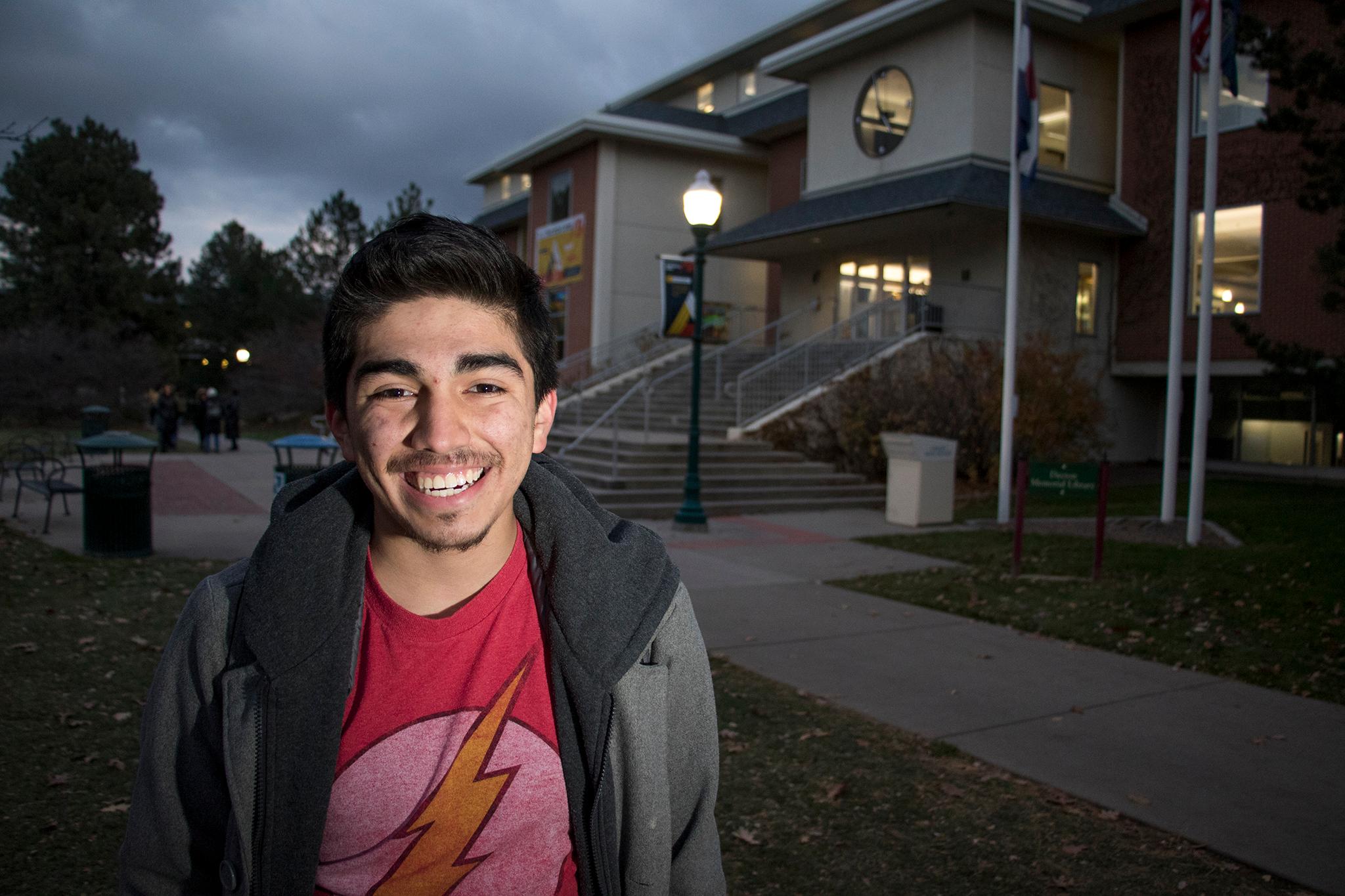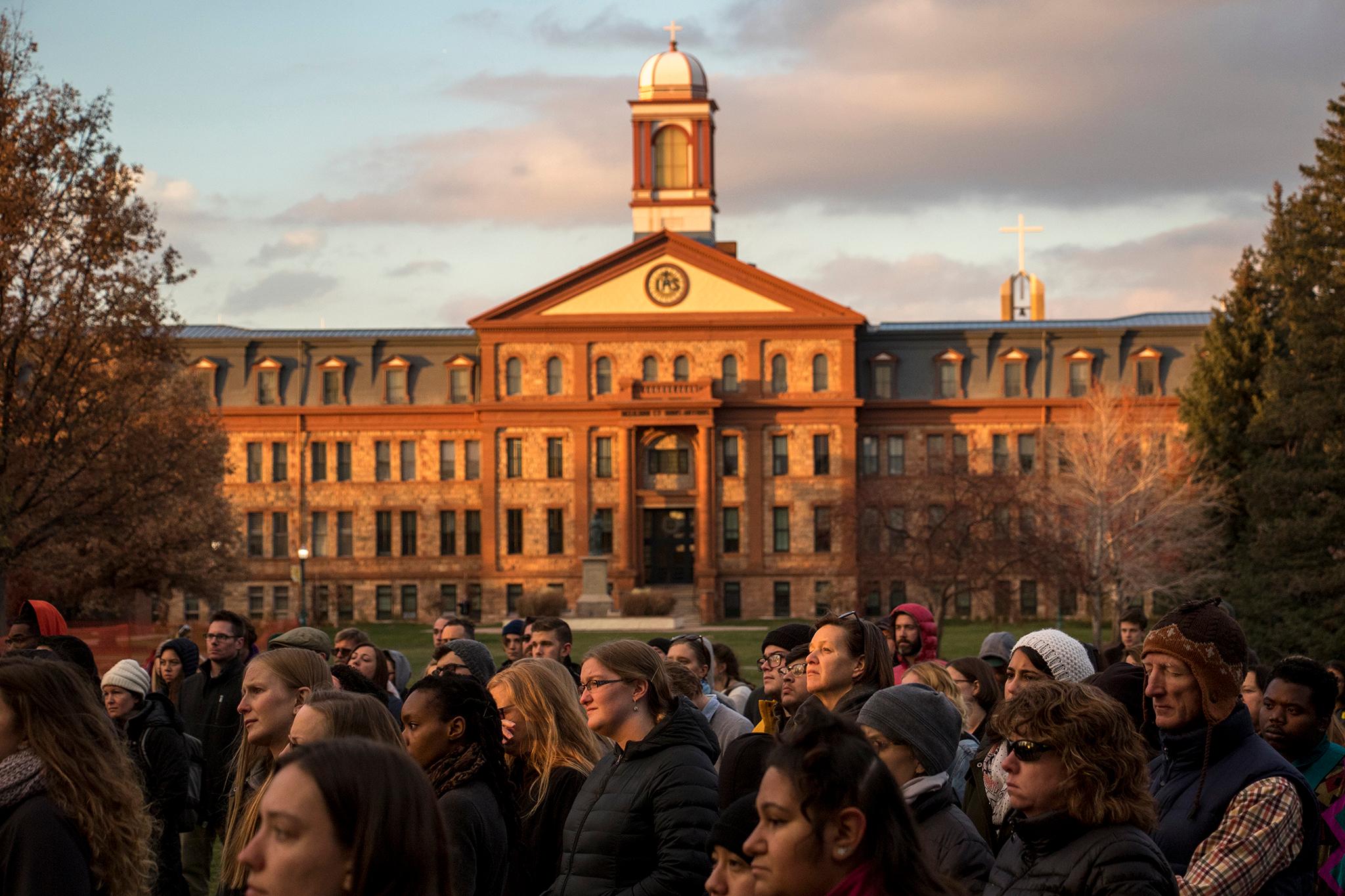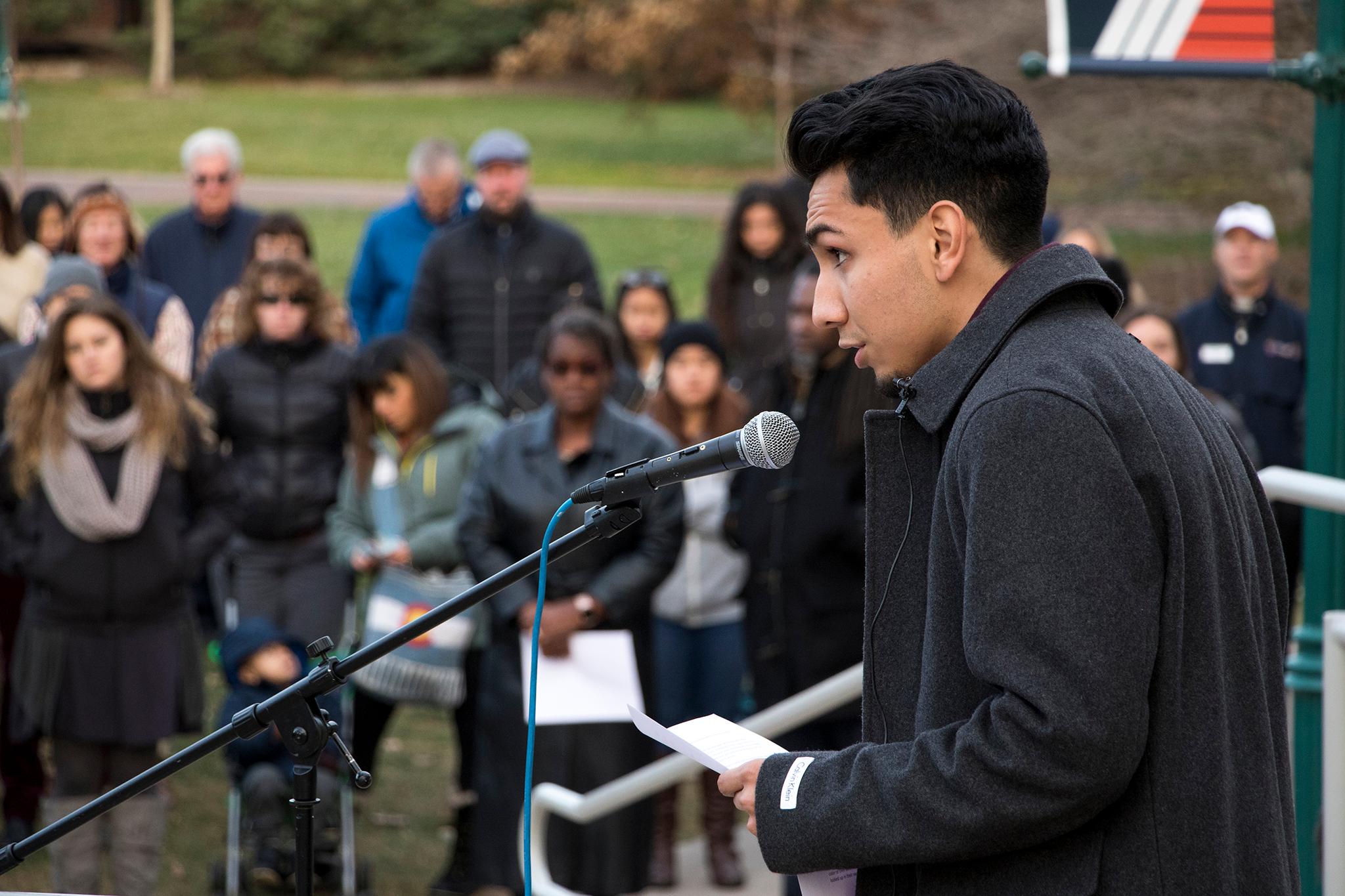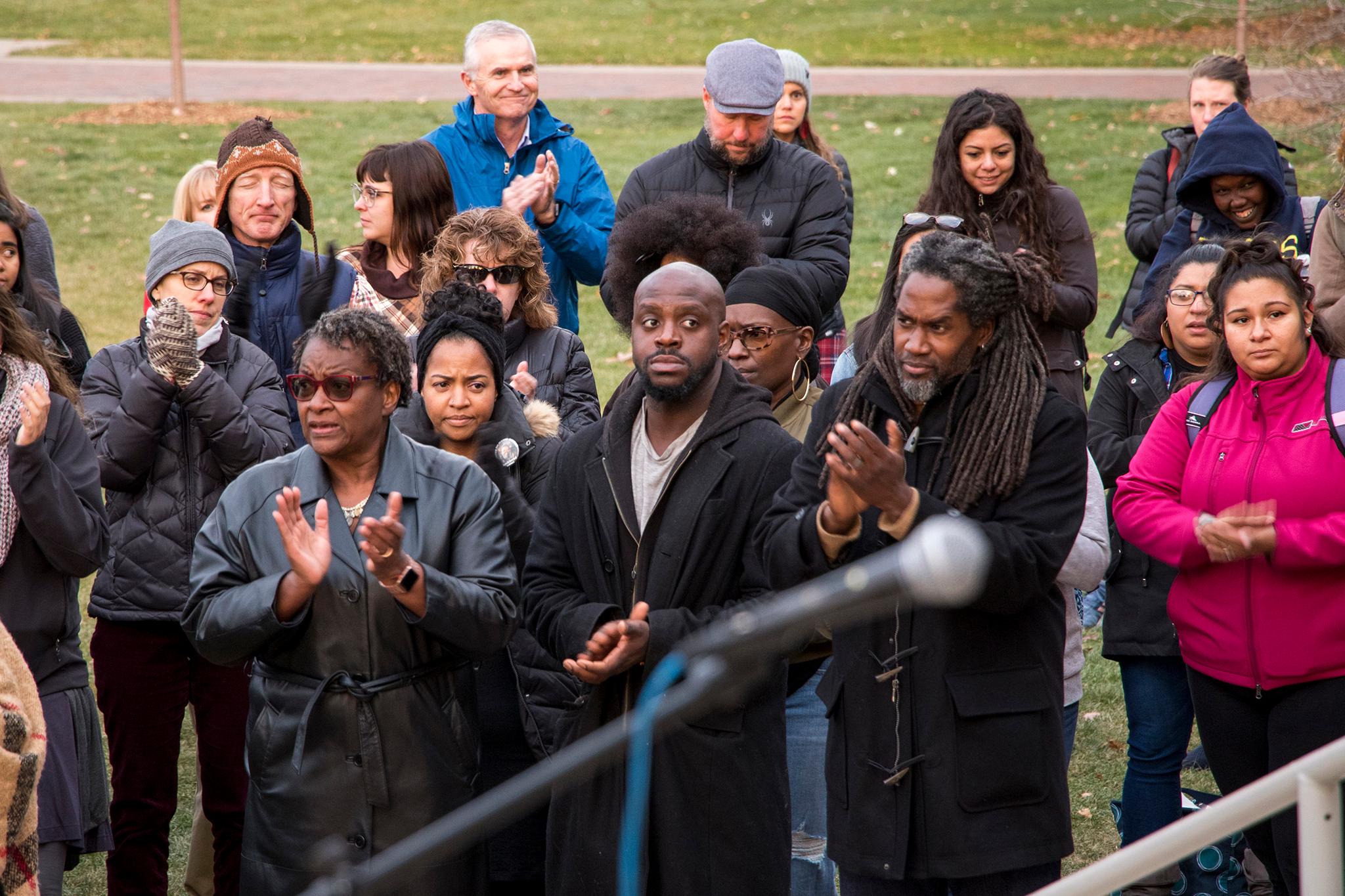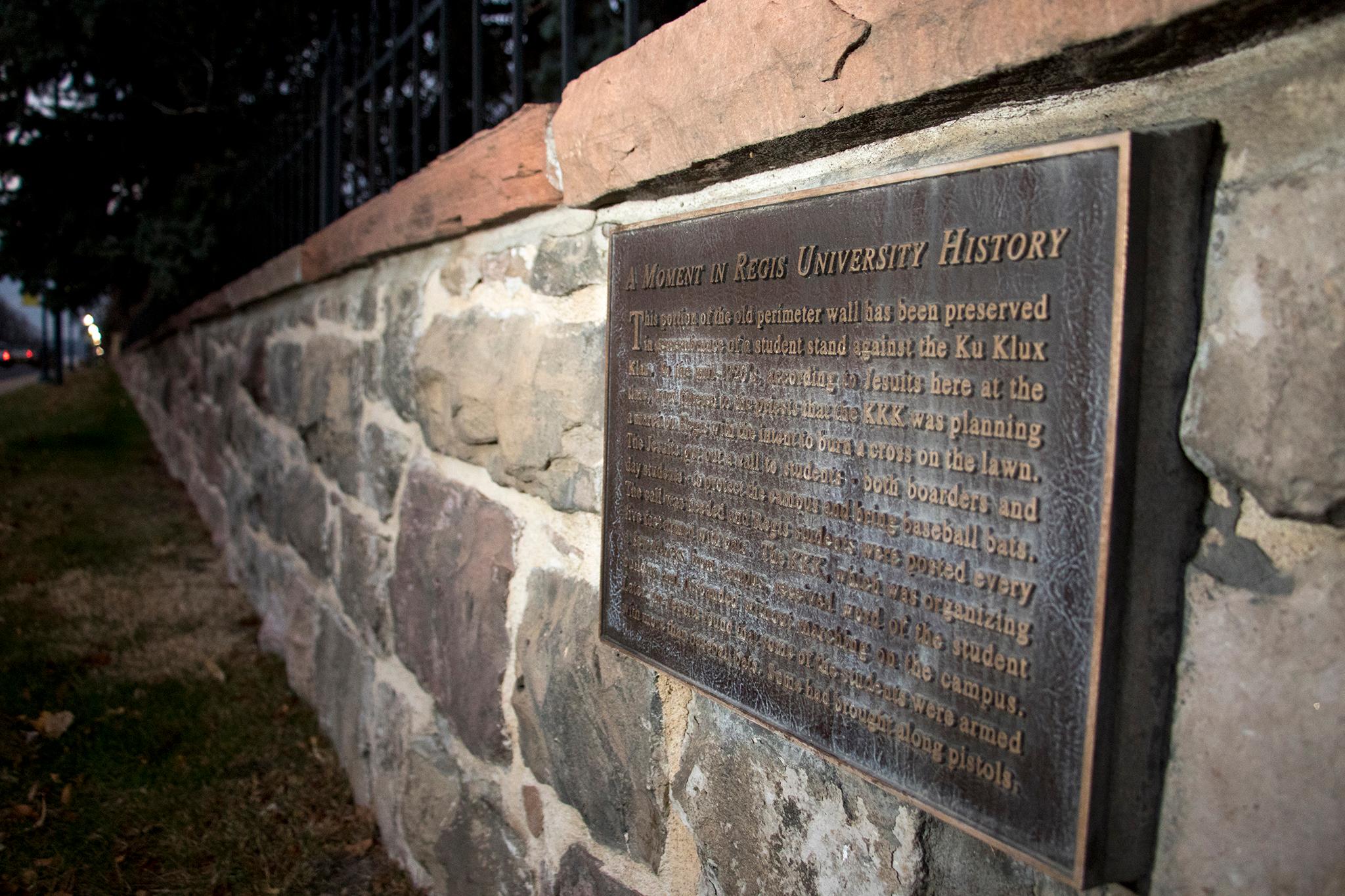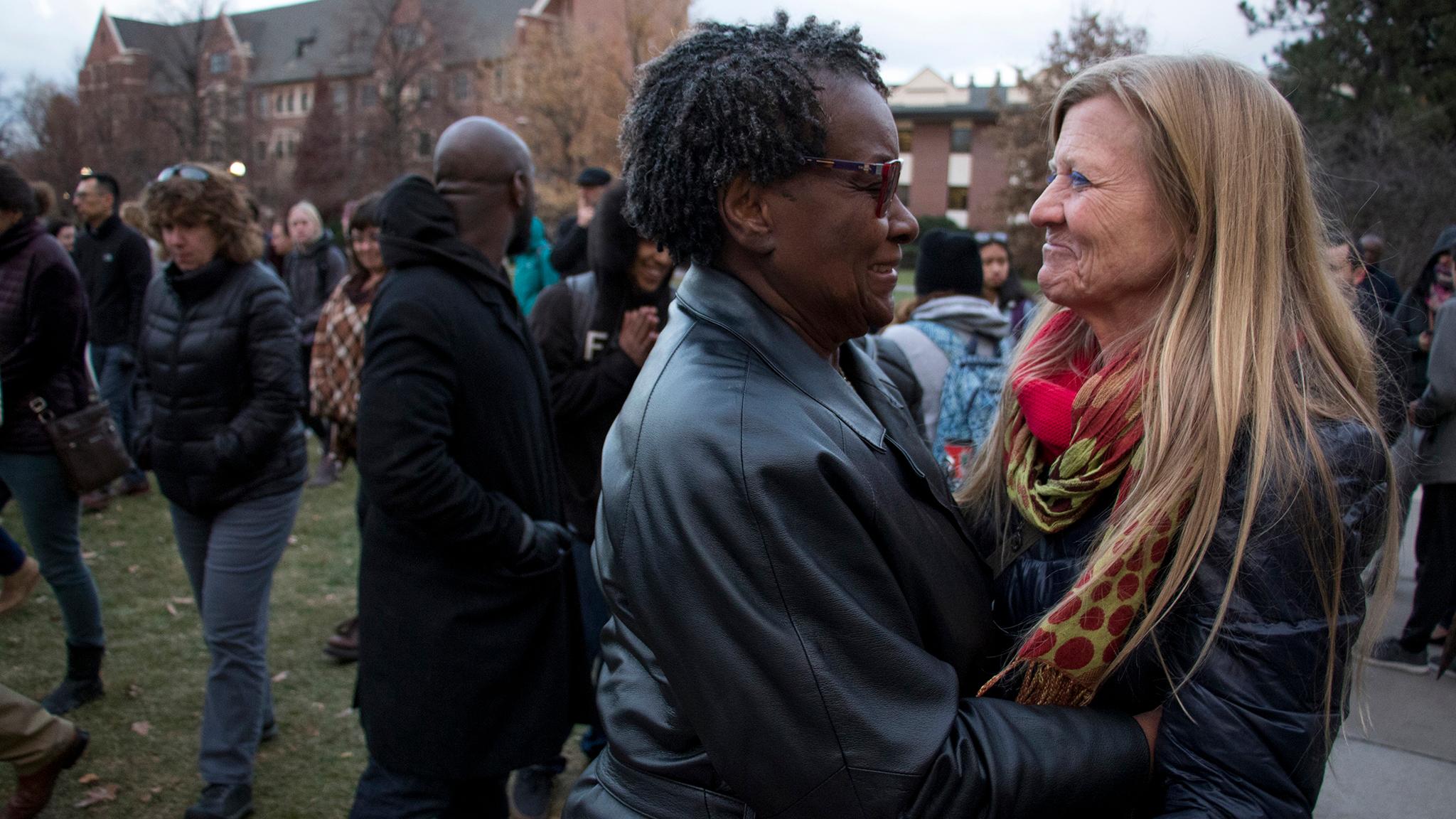The sun dipped below the horizon as a large crowd gathered in front of Regis University's Dayton Memorial Library Wednesday evening. It was an occasion that drew tears from some and anger from others. Students and faculty alike had come together in reaction to hateful messages that appeared on campus earlier this week.
When Phyllis Graham-Dickerson, assistant dean and professor of nursing, and a black woman, entered her office on Monday morning, she found a piece of paper that somebody had slid under the door. It was marked with a swastika and read, "White lives matter." She was one of three people on campus who received this message.
She closed the door and hid away in her office for the rest of the day, stunned and afraid. She called a close friend, civil rights activist Jumoke Emery-Brown, for consolation. Emery-Brown, however, soon had to run home to deal with another act of hatred: someone had just burned a pile of flyers — canvassing materials for a state ballot measure to take slavery out of Colorado's constitution — and left them smoking on his porch. He was a leading voice in that measure's eventual passage Tuesday.
Both Graham-Dickerson and Emery Brown said they think these instances were unrelated — a "fluke" that they both happened to occur on the same day. But both expressed that the acts were equally products of this current moment in America, defined by political divisions and rancorous dialogue.
While incidents like these are often followed by words and commiseration, there have increasingly been calls for action.
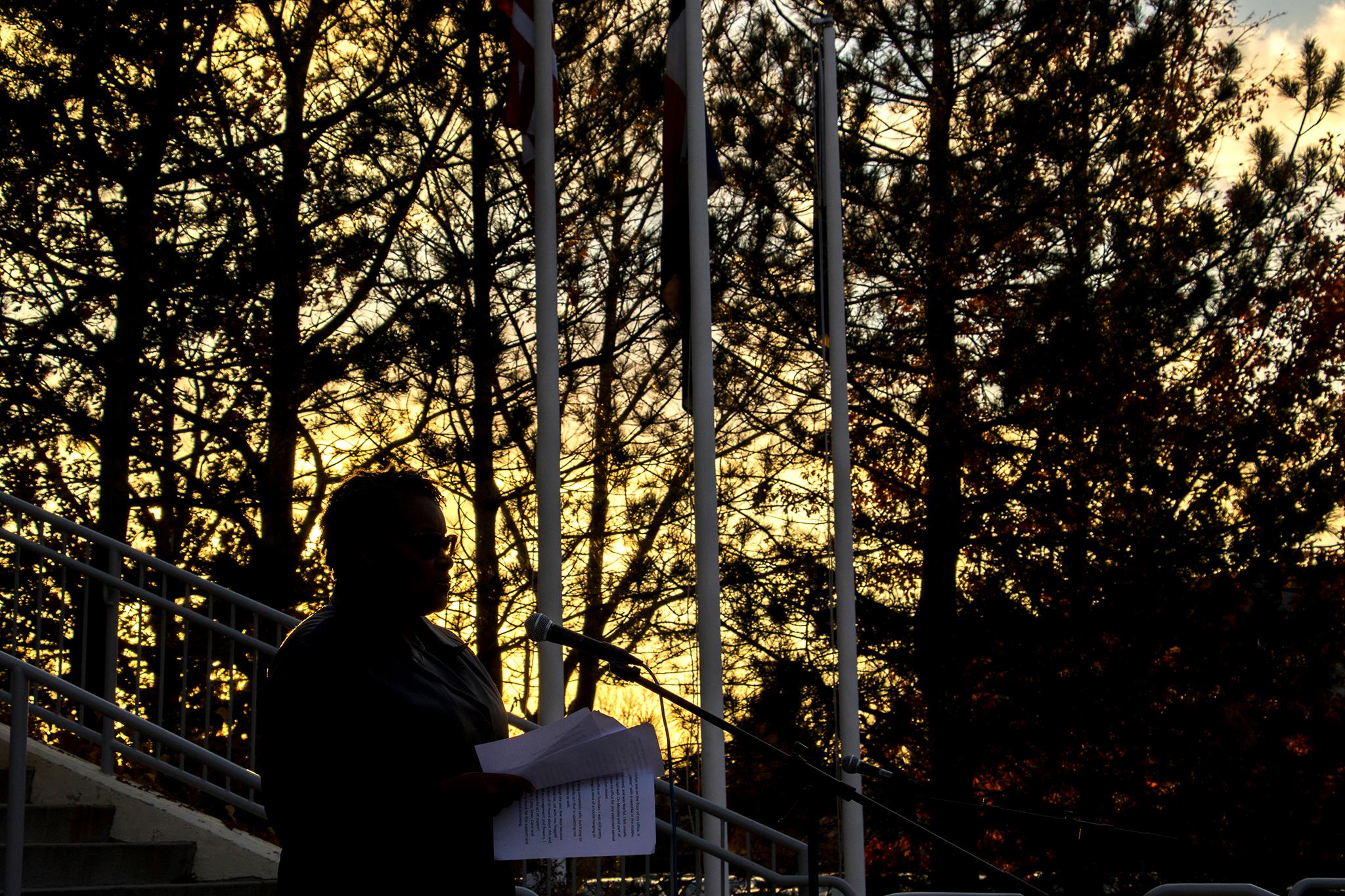
As Graham-Dickerson addressed the crowd at Regis, along with seven other speakers, she recalled a moment from when she was traveling in the Jim Crow south as a child. She unwittingly drank from a "whites only" water fountain, and remembers clearly that a white man pulled her away from the fountain. He shouted obscenities at her and told her that now they'd have to rip the fountain out.
"The story resurfaced for me on Monday morning," she told the crowd. "I felt intimidated and violated ... I have not slept well."
As she continued, she demanded the administration take action: The university must provide anti-racism education and training for students and faculty, they must expel or fire anyone who commits a hate crime and they must work to build a more diverse student body and staff.
Action, as opposed to talk, could come in political action.
While she was still nervous opening her office door on Tuesday, Graham-Dickerson said the election results later that night encouraged her, especially since Amendment A, the one finally banning slavery as punishment, passed. But she told Denverite that a hard swing to the left in state politics might not exactly be best for civil discourse.
"I don’t want radicalism on either side," she said. "I want what’s just and what’s right. And I don’t know, as human beings, if we can ever get there. But I’d like to hope that there’s a possibility."
She added that she thinks the flyer under her door was likely the product of rising tensions leading up to the midterm, and that President Donald Trump's words and actions might have given the perpetrator agency to act. She's glad that the national political stage might be poised for more of a debate moving forward.
"I hate that we have to have different parties, but it seems like it’s going to be so important to get more of a balance in Congress," she said.
Qusair Mohamedbhai, a civil rights attorney who works closely with the Colorado Muslim Society, said he expects discourse to intensify with the new balance of power in Washington. It follows the "uptick" he's witnessed in hate speech against Jews, Muslims and transgender and undocumented people.
But on the state level, he said, "the people of Colorado spoke very loudly."
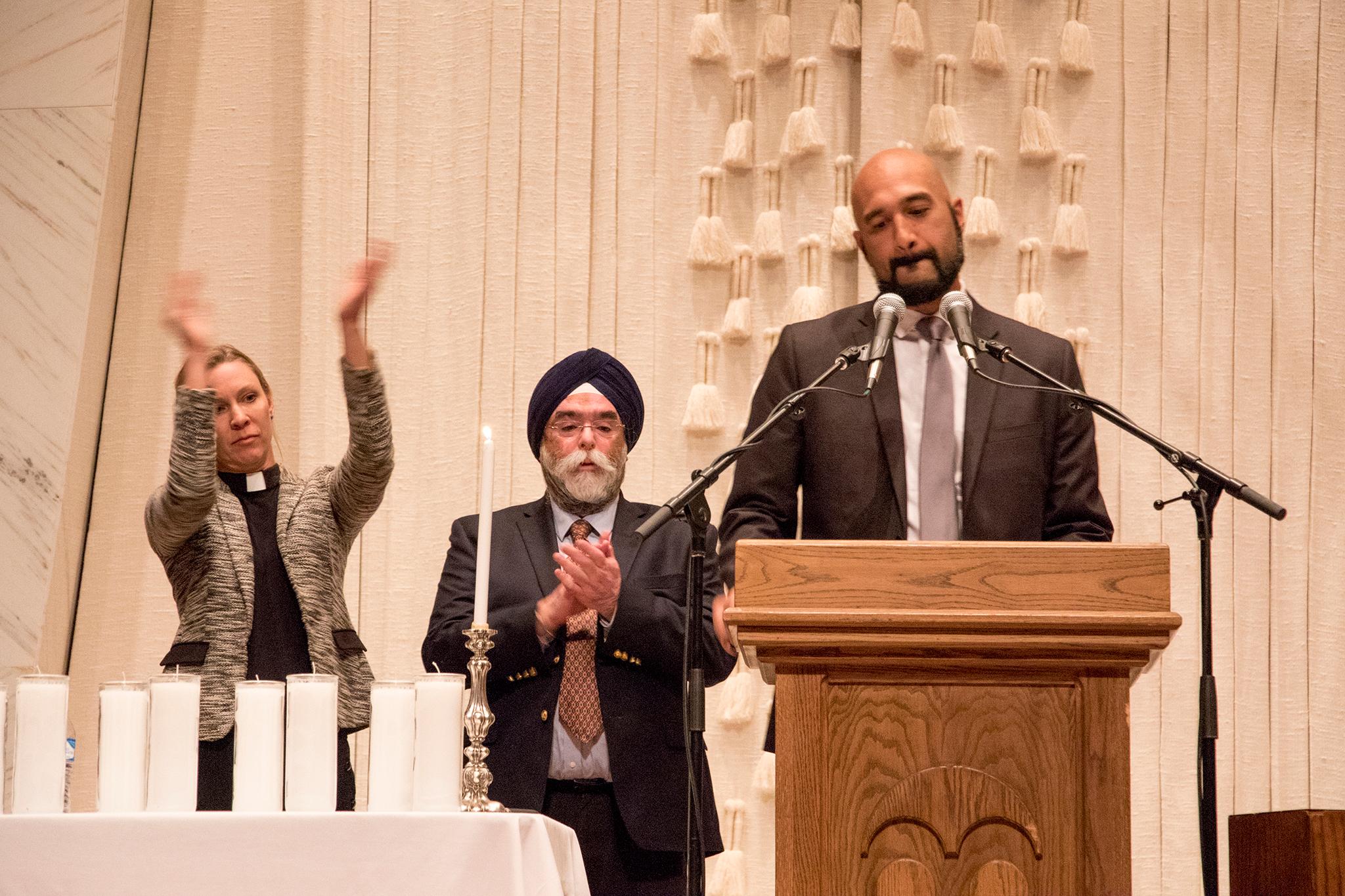
Mohamedbhai has long worked to battle hate speech and bias-motivated crimes against marginalized groups. He said the social justice community is "unbelievably active" in Colorado, enough to swing the election, and he hopes the community's presence might mean hateful acts wane in the state.
"I hope this is a wakeup call to politicians that this community very much values civil rights," he said.
The kind of vigil Regis held Wednesday night has been common lately in the city. Mohamedbhai spoke at one at Temple Emanuel about two weeks ago for the slain worshippers at a Pittsburgh synagogue.
"That moment, that vigil, that’s going to stick with me for the rest of my life," he told Denverite. "When they say love will defeat hate... you actually saw it. And you felt it."
Nicholas Aranda, a student who sits on Regis' social justice and diversity committee, closed out speeches Wednesday night with a message:
"Our words are never enough," he said in front of the crowd. "We tire of statements."
Instead, he continued, he hopes to see action, something tangible to address the hate that seems to dominate headlines and thoughts over the recent months.
"We will move. We will mobilize today, and we will march," he said.
A prayer closed the vigil, and then the group did march. Silently, they walked to a century-old wall bordering the campus where, in the 1920s, Regis students held the line with baseball bats and pistols to repel Ku Klux Klan members who intended to burn a cross on the Jesuit school's lawn.
